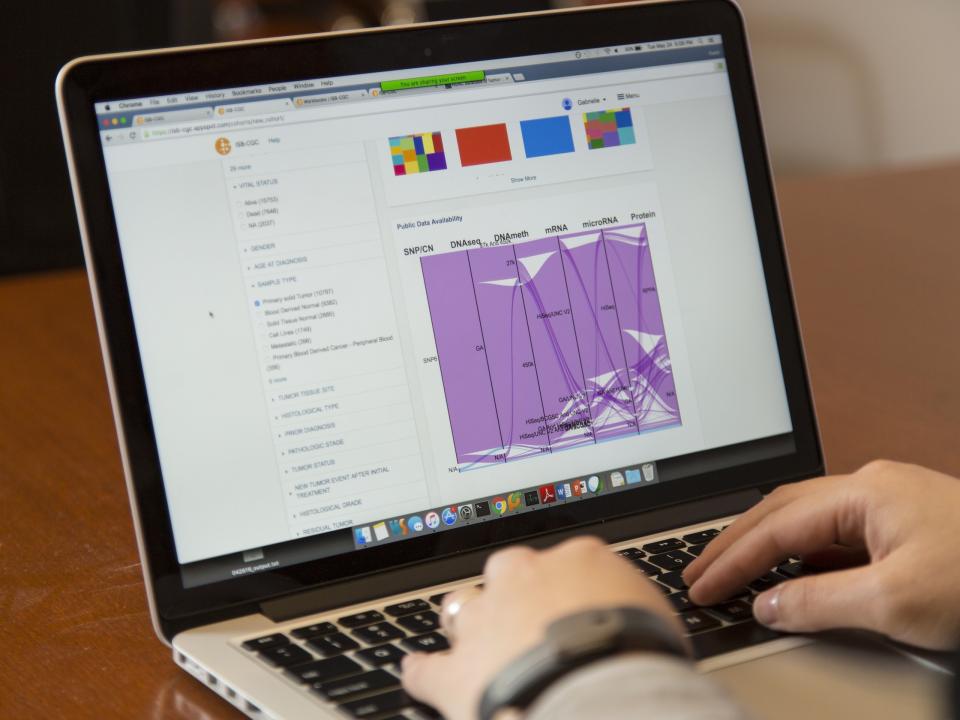This facility provides state-of-the-art OMICS technologies in support of Genetics Branch investigators and their collaborators. Genomics and other OMICS technologies are central domains of expertise in the Branch and encompass both wet lab and bioinformatics activities.
Genetics Branch
Genetics Branch
About
Among the defining concepts of the Genetics Branch is one that underlies its basic research focus and others that form the foundation of its clinical and translational research activities. The concept that underlies basic research is that cancer is a genetic disease caused by genetic instability. That instability is a function of all the inherited and acquired effects that mediate plasticity and alterability at the level of DNA. The success of molecular genetics over the past two decades has been the identification of genes involved in pathways of growth and development, and the identification of the mechanisms by which the normal regulation and/or products of these genes are altered in cancer. The elucidation of the necessary and sufficient factors that govern genetic instability, the description of the common and disparate themes among different types of instability, and the cataloging of distinct patterns of gene expression in tumors compared to the normal tissues from which they arise are within the purview and distinct perspective of this branch. There is, in addition, a clinical/translational mantle that this branch is called upon to shoulder.
At the clinical level this includes patient cancer risk screening, education, counseling, genetic testing (for those who choose to be tested, with testing provided in a setting that is attentive to all the ethical and legal aspects of the testing decision), and the development of appropriate surveillance and prevention options that take into account the category of risk that an individual patient, family, or population represents.
The translational research that supports this clinical enterprise consists of four components: (1) molecular diagnostics; (2) genotype/phenotype correlations; (3) the development of biomarkers that can be used for risk assessment and as intermediate endpoints for chemoprevention trials; and (4) targeted therapy and assays for active agents based on the underlying genetics and mechanism(s) of genetic instability that distinguish a tumor from the normal cells from which it arose. The Genetics Branch also is the site for the intramural NCI initiative to develop a repository and database for high-resolution FISH-mapped STS-tagged BAC clones spaced at 1-2 Mb intervals across the human and murine genomes. We hope that this repository and database will serve as a general resource to the entire biomedical community for exploration of cancer-specific chromosomal aberrations.
Job Vacancies
We have no open positions in our group at this time, please check back later.
To see all available positions at CCR, take a look at our Careers page. You can also subscribe to receive CCR's latest job and training opportunities in your inbox.
News
Learn more about CCR research advances, new discoveries and more
on our news section.

Contact
Contact Info
Center for Cancer Research National Cancer Institute
- Building 37, Room 6138
- Bethesda, MD 20892-4265
- 240-760-7376








